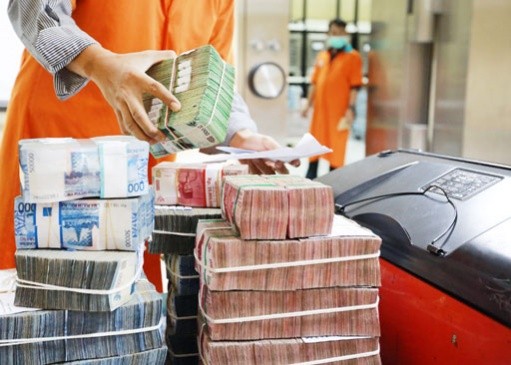Popular Reads
Top Results
Can't find what you're looking for?
View all search resultsPopular Reads
Top Results
Can't find what you're looking for?
View all search resultsBNI sees 41% profit dive in first half over deteriorating asset quality
The publicly listed bank booked Rp 4.46 trillion (US$301.34 million) in net profit in the first half of this year. The figure contracted 41.6 percent compared to the same period of 2019 due to flatlining net interest income, which only grew 1 percent to Rp 17.8 trillion caused by delayed loan repayment.
Change text size
Gift Premium Articles
to Anyone
S
tate-owned Bank Negara Indonesia (BNI) booked a profit decline of more than 40 percent during the first half of this year as the COVID-19 pandemic caused its asset quality to deteriorate.
The publicly listed bank booked Rp 4.46 trillion (US$301.34 million) in net profit in the first half of this year, down 41.6 percent compared to the same period in 2019.
BNI director Sigit Prastowo attributed the sharp profit decline to rising provision.
“We had to set aside bigger provisioning because the pandemic is causing our asset quality to deteriorate,” he said during a virtual press briefing on Tuesday.
Provisioning grew 88.2 percent year-on-year (yoy) to Rp 7.47 trillion, in line with its coverage ratio, which increased sharply to 214.1 percent from 133.5 percent in 2019.
Sigit said the bank expected its provisioning to continue to affect its bottom line until the end of this year. However, he said the bank would try to maintain positive profit growth at the end of 2020 albeit with a lower figure than the previous year.
On top of that, the bank's net interest income flatlined, growing only 1 percent to Rp 17.8 trillion due to delayed loan repayments.
Its non-performing loan (NPL) ratio rose significantly to 3 percent from 1.8 percent recorded in June last year, according to BNI’s presentation material obtained by The Jakarta Post. It is slightly lower than the NPL ratio of the industry at 3.1 percent in June, Financial Services Authority (OJK) data show.
BNI’s third-party funds grew 11.3 percent yoy to Rp 662.4 trillion in the first half, while its capital adequacy ratio (CAR) stood at 16.7 percent in June.
Despite the flatlining net interest income and gloomy profit outlook, the bank is still upbeat that its non-interest income will continue to grow at the end of this year.
Sigit said the bank recorded a 9.2 percent yoy increase in the first half on ATM and e-channel fees as the pandemic pushed customers to conduct transactions using its internet and mobile banking services. At the same time, foreign exchange trading grew 83.8 percent from last year due to the increase in derivative transactions.
“As a result, our non-interest income grew 3.2 percent in the first half of this year and we are confident that it will continue to grow positively until the end of this year,” he said.
The bank still managed to record positive loan growth during the first half of this year despite slowing loan demand.
BNI’s loan disbursement grew 5 percent to Rp 576.78 trillion during the period. The figure was well above the banking industry’s growth of 1.49 percent in June, according to the OJK.
“We will maintain this positive growth while being more selective in disbursing loans this year,” said Sigit, adding that the bank expected its loan disbursement to grow a little over 4 percent at the end of 2020.
The state-owned bank will also continue to disburse more loans for micro, small and medium enterprises (MSMEs), as well as labor-intensive and export-oriented corporations to contribute to the national economic recovery program (PEN).
“So far we have disbursed Rp 9.15 trillion in loans to 36,000 customers,” director Tambok Simanjuntak said.
She added that the disbursement was equal to 1.83 times the government’s fund placement in BNI, amounting to Rp 5 trillion.
The government has placed a total of Rp 30 trillion in four state-owned banks, as part of the country’s COVID-19 response worth Rp 695.2 trillion, which is aimed at bolstering the economy and strengthening the healthcare system. The placement is supposed to help bank liquidity and stimulate credit growth amid the economic impact of the pandemic.
BNI director Adi Sulistyowati added that the bank had restructured Rp 119.3 trillion in loans, equal to 21.9 percent of its total disbursed loans.
Jasa Utama Capital equity analyst Chris Apriliony said on Wednesday that the less-than-stellar first half performance was somewhat expected given the slowing economy during the start of the pandemic.
“However, there is still hope in the second half as economic activity has slowly returned to normal following easing restrictions,” he said.
BNI’s share price, listed under the code BBNI on the Indonesia Stock Exchange (IDX), had lost 35.67 percent of its value since the beginning of the year. As of 1:06 p.m. on Wednesday, the share was unchanged at Rp 5,050 apiece.










